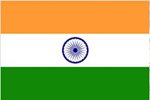Giancarlo Buonomo
 When I graduated from the University of Michigan in 2016, I wanted to be a journalist. I moved to Rome and spent three years working as a freelance correspondent for various publications such as VICE, Eater and The Forward. Living abroad and working as a journalist satisfied my lifelong desire to interact with people from all over the world and try to understand their lives as much as I could. I decided to go to medical school because I realized that, as a doctor, I would satisfy that same desire, but help those same people in ways that seemed more urgent and concrete to me. I completed a post-BACC at Bryn Mawr College in Pennsylvania while working as a research assistant at Massachusetts General Hospital on projects related to gun violence and COVID-19. I am currently an M2 at Boston University School of Medicine, where I am involved with the Global Health Equity Program, The Coalition for Adult Immunization and the Homeless Health Immersion Experience, as well as working on research related to Tuberculosis and Chagas Disease. The former work is what my Kean Fellowship enabled me to travel to India for. The project, Tuberculosis: Learning the Impact of Nutrition (TB-LION), involves giving patients with latent TB nutritional supplementation (in the form of rice, oil and other ingredients) to see whether progression to active TB disease can be prevented.
When I graduated from the University of Michigan in 2016, I wanted to be a journalist. I moved to Rome and spent three years working as a freelance correspondent for various publications such as VICE, Eater and The Forward. Living abroad and working as a journalist satisfied my lifelong desire to interact with people from all over the world and try to understand their lives as much as I could. I decided to go to medical school because I realized that, as a doctor, I would satisfy that same desire, but help those same people in ways that seemed more urgent and concrete to me. I completed a post-BACC at Bryn Mawr College in Pennsylvania while working as a research assistant at Massachusetts General Hospital on projects related to gun violence and COVID-19. I am currently an M2 at Boston University School of Medicine, where I am involved with the Global Health Equity Program, The Coalition for Adult Immunization and the Homeless Health Immersion Experience, as well as working on research related to Tuberculosis and Chagas Disease. The former work is what my Kean Fellowship enabled me to travel to India for. The project, Tuberculosis: Learning the Impact of Nutrition (TB-LION), involves giving patients with latent TB nutritional supplementation (in the form of rice, oil and other ingredients) to see whether progression to active TB disease can be prevented.

Tuberculosis: Learning the Impact of Nutrition (TB-LION)
Jawaharlal Institute of Postgraduate Medical Education & Research (JIPMER)
India
What does the Kean Fellowship mean to you?
The Kean Fellowship is an amazing opportunity and honor! I feel humbled to receive a fellowship named after such an iconic figure in medicine. Most of all I feel grateful to my mentors and supporters at BUSM who encouraged me to apply for the Kean: Natasha Hochberg, Pranay Sinha, Suzanne Sarfaty and Chelsie Cintron.
What do you anticipate learning?
I spent part of the summer at JIPMER in Pondicherry, India, with Dr. Hochberg and Dr. Sinha and many wonderful Indian colleagues. Our project, Tuberculosis: Learning the Impact of Nutrition (TB-LION), involves giving patients with latent TB nutritional supplementation (in the form of rice, oil and other ingredients) to see whether progression to active TB disease can be prevented. Undernutrition is the leading Population-Attributable Risk Factor (PAF) for TB in India, and so it is vital to better understand how this works and whether food can be a medicine. What I learned in India was so much about the practice of global health that no textbook or lecture could teach me. The biggest thing that stuck with me was the absolute necessity of acknowledging that you are in someone else's country, and that your job is to uplift and support local staff as much as you can.
What interests you about tropical medicine and what problems are you interested in solving?
My interests right now are primarily in capacity-building. The project I was gathering data for in India is a micro-costing analysis of TB-LION and its nutritional intervention. The most sustainable way to address tropical diseases is to facilitate and support local healthcare systems. By doing a precise cost breakdown of every element of TB-LION, my hope is that other organizations in India, be it hospitals, NGOs or even the government, will have a blueprint to establish nutritional programs of their own.